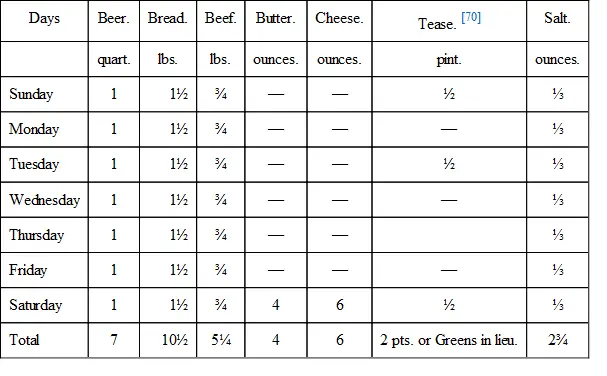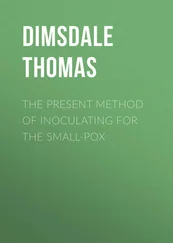Thomas Walker - The Depot for Prisoners of War at Norman Cross, Huntingdonshire. 1796 to 1816
Здесь есть возможность читать онлайн «Thomas Walker - The Depot for Prisoners of War at Norman Cross, Huntingdonshire. 1796 to 1816» — ознакомительный отрывок электронной книги совершенно бесплатно, а после прочтения отрывка купить полную версию. В некоторых случаях можно слушать аудио, скачать через торрент в формате fb2 и присутствует краткое содержание. Жанр: foreign_prose, История, foreign_edu, foreign_antique, на английском языке. Описание произведения, (предисловие) а так же отзывы посетителей доступны на портале библиотеки ЛибКат.
- Название:The Depot for Prisoners of War at Norman Cross, Huntingdonshire. 1796 to 1816
- Автор:
- Жанр:
- Год:неизвестен
- ISBN:нет данных
- Рейтинг книги:3 / 5. Голосов: 1
-
Избранное:Добавить в избранное
- Отзывы:
-
Ваша оценка:
- 60
- 1
- 2
- 3
- 4
- 5
The Depot for Prisoners of War at Norman Cross, Huntingdonshire. 1796 to 1816: краткое содержание, описание и аннотация
Предлагаем к чтению аннотацию, описание, краткое содержание или предисловие (зависит от того, что написал сам автор книги «The Depot for Prisoners of War at Norman Cross, Huntingdonshire. 1796 to 1816»). Если вы не нашли необходимую информацию о книге — напишите в комментариях, мы постараемся отыскать её.
The Depot for Prisoners of War at Norman Cross, Huntingdonshire. 1796 to 1816 — читать онлайн ознакомительный отрывок
Ниже представлен текст книги, разбитый по страницам. Система сохранения места последней прочитанной страницы, позволяет с удобством читать онлайн бесплатно книгу «The Depot for Prisoners of War at Norman Cross, Huntingdonshire. 1796 to 1816», без необходимости каждый раз заново искать на чём Вы остановились. Поставьте закладку, и сможете в любой момент перейти на страницу, на которой закончили чтение.
Интервал:
Закладка:
The prisoners lived in the caserns day and night when the weather was too bad for them to live out of doors, but in fair weather they were compelled by the regulations to live outside “in the airing-court” from morning to dusk, except when they were summoned to the casern for their dinner. The quadrangle is in Foulley’s description of his model always called “ pré ,” and probably there was more or less grass on the surface.
Within the stockade fence which enclosed each quadrangle, the prisoners, about 1,800 in each square, were left to themselves, no soldiers, no sentries, no free men, except the turnkeys, whose lodges were, with the cooking-house, storehouses, &c., in a special court cut off from the airing-court by the same unclimbable stockade fence. In each compound the prisoners formed a self-governing community, but all of them subject to the laws which applied to the whole body—viz. the Prison Regulations.
These communities differed from every other community of human beings (except perhaps the inmates of monasteries) in being deprived of any participation in the two essential factors on which the bare existence of every animal race depends—viz. the provision of the actual necessaries of life, food and, in the case of man, clothing, for the preservation of its own generation; and the reproduction of its kind, to insure a future generation. The necessaries of individual life were provided by the Government.
The feeding of the prisoners and the troops in the barracks was an enormous tax on the resources of the country, greatly as it must have benefited the agriculturists, and purveyors of provisions of all kinds in the neighbourhood. A paragraph in the Times of 14th August 1814, states that “about £300,000 a year was spent by the Government in Stilton, Yaxley, Peterborough, and neighbourhood in the necessary provision of stores,” and this was not an exaggerated statement, as a calculation based on the average number of the prisoners and garrison, the dietary, and the price of provisions, shows that bread and meat alone would cost more than half the amount named in the Times . 33
The exact ration appears to have varied:
The contract for victualling commenced on 12th April 1797, when the contractor was called upon to supply beef 1 lb., biscuit 1 lb., beer 2 quarts—as the daily ration of each prisoner.
This must have been a temporary ration on the first opening of the prison. In a later report the following is given as the scheme of victualling for a week:

[70]When Greens are issued in lieu of Pease, one pound stripped of the outer leaves and fit for the copper shall be issued to each prisoner.
Each prisoner shall receive two ounces of Soap per week.
The ration for the greater period appears to have been beef ¾ lb., bread ½ lb., cabbage 1 lb., or a supply of pease; Wednesdays or Fridays, herrings or cod substituted for the meat, and a pound of potatoes.
This change of the diet on Wednesday and Friday, made on account of the religion of the majority of the prisoners, and also as being more in accordance with their national diet, was recommended by the agent of the prison; but there was considerable delay, and some hardship to the prisoners, before the recommendation was granted. The fish when it reached the prison must have been several days old, and was no doubt salted. A new scale later on was fresh beef ½ lb., bread 1 lb., a quart of soup composed of vegetables and pease. The terms of the contracts with those supplying the food were very stringent. The conditions in the first contract at Norman Cross have already been given at p. 43 in chap. ii.
When in November 1797 it was agreed by the French and British Governments that each Government should feed its own countrymen in the enemy’s prisons, and the French took over the feeding of the prisoners in Britain, they made only a slight change in the ration to suit it more to French cookery. The daily allowance per head being, beer 1 qt., beef 8 oz., bread 26 oz., cheese 2 oz. or good salt butter ⅓ oz., pease ½ pt., fresh vegetables 1½ lb. The French also allowed each prisoner ½ lb. of white soap and ¾ lb. of tobacco in leaf, per month.
The diet of hospital patients was on a very liberal scale: 1 pt. of tea morning and evening, 16 oz. of white bread, 16 oz. of beef or mutton, 1 pt. of broth, 16 oz. of greens or good sound potatoes, and 2 qts. of malt beer, and, in the case of patients requiring it, beef, fish, fowls, veal, lamb, and eggs might be substituted.
The diet was investigated by a commissioner sent round to the various prisons, who reported that, “although the amount of meat would seem scarcely enough to an Englishman, the French, by their skill in cookery, made such an excellent soup or broth out of it as to afford ample support for men living without labour, such as our labouring poor rarely have at any time, but certainly not during the present scarcity.” The same commissioner in July 1797 recommended that an alteration should be made in the contracts, so as to insure early delivery, “as the lateness prevents the cookery of the meat as the French desire, which is by boiling it down for four or five hours with a strong and excellent broth, after which the meat is good for but little, and but little regarded by the prisoners.” 34
The food was prepared by cooks chosen from the prisoners themselves, and paid by the Government. To insure the good quality and proper quantity of the goods supplied, and to eliminate the possibility of the storekeepers being bribed by the contractors to pass inferior goods, the prisoners of each block were ordered by Clause 8 of the Prison Rules to appoint delegates to attend when the food and other goods were delivered, and to see that they were up to the standard specified in the contract.
There were in the various prisons occasional complaints, and if they were justified the contractors were punished. In one instance the defaulting contractor at Plymouth was fined £300 and imprisoned for six months in the County Gaol. Beer at one time was supplied to the prisoners by the Government, and when this allowance ceased, it could, under certain regulations, be obtained on payment. This beer was of a very light and cheap quality , as attested by the books of the Oundle Brewery, but half a gallon a day, given in the first ration of which we have found a note, is so large an allowance, even for those bibulous days, that it suggests an error in the memorandum. Tea and coffee in those days were the luxuries of the well-to-do only, and were not for prisoners or for our own poorer countrymen and women. There was no tea or coffee.
There can be no doubt that every possible precaution was taken to insure that the food supplied by the Government was good, and sufficient to maintain an average man in good health, and in the market held in the enclosed space at the east gate, to which the prisoners had access, those who had money could buy additional food and luxuries. But although beyond doubt the allowance of food was sufficient for an average man, there must have been in those twenty years thousands of men with hearty appetites who finished their ration hungry and dissatisfied—and the sequel will show that there were others who actually died of starvation, owing to their own vices.
Each prisoner was allowed a straw palliasse, a bolster, and a blanket or coverlet, the straw being changed as often as was necessary.
The British Government never withdrew its contention that it was the duty of each nation to provide clothing for its subjects in captivity in the country of its enemy, and maintained that this had been the practice of France and England in all previous wars, even in that in which they were engaged up to the Treaty of Versailles in 1783, only ten years before the outbreak in 1793 of the war under discussion; but as an act of humanity, when the French obstinately declined to discharge this duty, the Government clothed a certain number of the naked in a yellow suit, a grey or yellow cap, a yellow jacket, a red waistcoat, yellow trousers, a neckerchief, two shirts, two pairs of stockings, and one pair of shoes.
Читать дальшеИнтервал:
Закладка:
Похожие книги на «The Depot for Prisoners of War at Norman Cross, Huntingdonshire. 1796 to 1816»
Представляем Вашему вниманию похожие книги на «The Depot for Prisoners of War at Norman Cross, Huntingdonshire. 1796 to 1816» списком для выбора. Мы отобрали схожую по названию и смыслу литературу в надежде предоставить читателям больше вариантов отыскать новые, интересные, ещё непрочитанные произведения.
Обсуждение, отзывы о книге «The Depot for Prisoners of War at Norman Cross, Huntingdonshire. 1796 to 1816» и просто собственные мнения читателей. Оставьте ваши комментарии, напишите, что Вы думаете о произведении, его смысле или главных героях. Укажите что конкретно понравилось, а что нет, и почему Вы так считаете.












